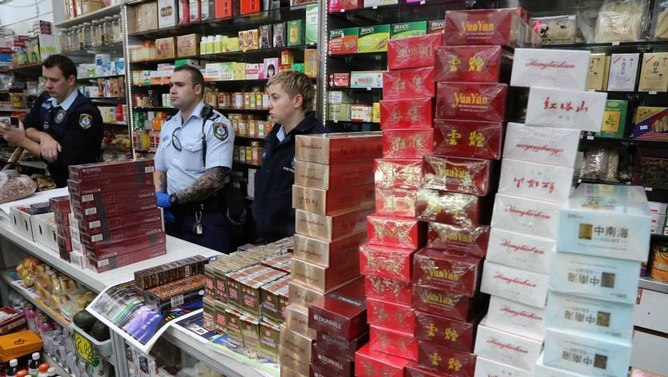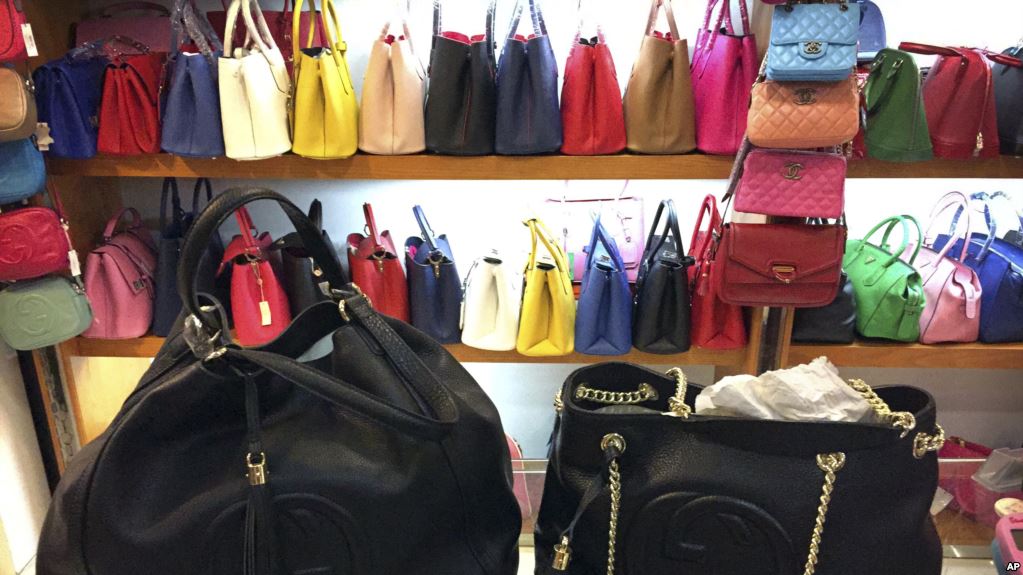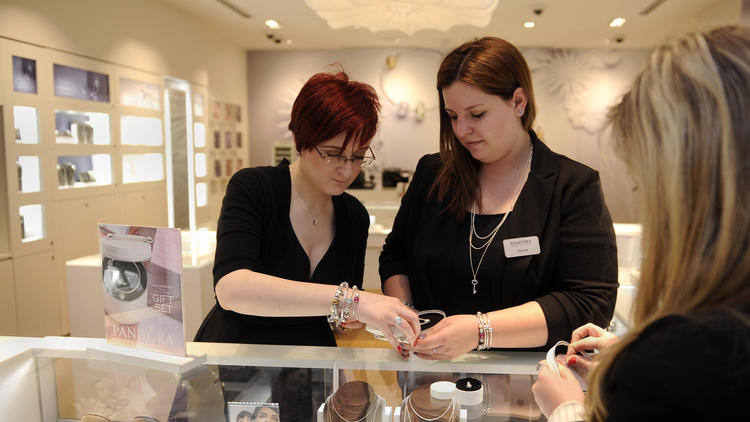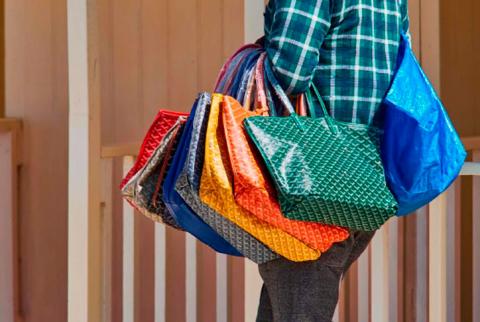
Illicit tobacco imports ripping off Aussie taxpayers of at least $640 million
TAXPAYERS have been ripped off by at least $640 million because of illicit tobacco shipped by criminal gangs and dodgy importers in the last five years alone.
That figure is the amount of tax that should have been paid on illegally imported tobacco — almost entirely shipped as sea cargo — seized and destroyed by border authorities.
Immigration Minister Peter Dutton has vowed to crack down on the trade and put a stop to organised criminal syndicates eyeing Australia’s lucrative market.
“Illicit tobacco smugglers are ripping off taxpayers and putting cheap cigarettes into the hands of young kids and we are doing all we can to stamp them out,” Mr. Dutton said.
Lear More
Vaporizer manufacturer, Grenco Science, awarded $47 million in damages from fake counterfeits
Counterfeit products run rampant in almost all categories of commerce. Clothing, electronics, you name it and it’s guaranteed that someone is selling a fake version of it. Whether it’s straight-up counterfeiting or the unauthorized use of intellectual property and patents, people will go to great lengths to make a buck off of the unsuspecting or uneducated.
This also holds true for vaporizers, apparently, with Grenco Science, creator of the G Pen and other devices, being one of the latest victims of mass counterfeit products being sold under the guise of their brand. While counterfeit products are bad for any brand, when it comes to something like vaporizers, the cheap products used in the counterfeits can put a huge dent into the validity and public perception of the real company.
Many of these counterfeit vaporizers use cheap, poorly manufactured batteries. Not only will these batteries not last long and are prone to not working in the first place, but it opens up the possibility of danger to the user that comes with cheap batteries. It’s just bad news all around, to be honest.
https://knowtechie.com/vaporizer-manufacturer-grenco-science-awarded-47-million-in-damages/
Lear More
Report: Sales of Counterfeit Reproductions Set to Increase Worldwide
A new report predicts a rise in counterfeiting and pirated goods over the next ten years.
The report says China has been at the center of copying goods, from clothes to electronic devices, and medicines to beauty products.
It says governments and businesses are working to stop the illegal and unapproved copying of products, and protect companies and jobs.
The International Trademark Association and the International Chamber of Commerce published the report in February. It estimated the value of counterfeiting and piracy worldwide could reach $2.3 trillion by 2022. In 2015, the value was $1.7 trillion.
The research company Frontier Economics prepared the report. It said social, investment and criminal enforcement costs could increase the total cost of counterfeiting and piracy to $4.2 trillion. It said that would put about 5.4 million jobs at risk.
Lear More

Fonterra introduces traceability technology to fake-proof its infant formula brand.
Fonterra is using traceability technology so shoppers can instantly check the authenticity of infant formula products while they are still on store shelfs.
Quick Read (QR) codes are initially on the cans of the dairy co-operative’s infant formula brand Anmum at New Zealand stores and will eventually help prevent fraud and counterfeiting overseas.
Each can carries a unique QR code that when scanned using a mobile device, connects infant formula buyers to a webpage with information and a batch number verifying that it is authentic.
Chinese shoppers trust and are prepared to pay more for New Zealand infant formula after contamination scares and scandals, but fake infant formula cans were found last year with ties to counterfeit rings.
Consumers can also scan cans at any stage after they have bought it to get up to date status information about the product.
The technology showed consumers where and when the product was manufactured, its expiry date was and whether it was authentic, Fonterra trust in source general manager Tim Kirk said.
Lear More
Dangers posed by fake pesticides
ISLAMABAD: It is a great tragedy that fake products and documents have made their way into all domains and disciplines. Everything ranging from edible goods to pharma products is found to be fake. I wish to warn readers about the proliferation of fake fertilizers, unhealthy seeds, fake pesticides, herbicides, insecticides, among other agri-inputs, in out country. These pose a great danger to the fertility of the soil, the environment, agricultural production, health of the growers and agri-product users in the province of Sindh. Numerous crops are potentially damaged or destroyed throughout the province because of these cheap counterfeit substances used, coupled with severe shortage of water.
The influx of fake chemicals is harming people and the rural economy. Farmers in the province put their livelihoods in jeopardy if they buy something that is not the legitimate product. But who cares in the land of the pure to purify the impure? We must penalise such manufacturers and their dealers while raising awareness about the fake chemicals and the hazards they pose.
https://tribune.com.pk/story/1377669/dangers-posed-fake-pesticides/
Lear More
Antiquated EU regulation obstacle to effective fight against counterfeit and pirated products industry, revealed EESC hearing on 6 April.
The counterfeit goods industry is detrimental to jobs and growth in Europe and deprives governments of billions in tax revenues and threatens health and security of EU workers and citizens. Nevertheless, imports of fake goods have even doubled worldwide within 10 years due to digital trade. Now it is high time for Europe’s legal framework to also arrive in the 21stcentury. The European Commission and the Member States urgently need to adapt their legal frameworks and ensure the necessary controls and market surveillance. Consumers need to be better informed, which is even a specific fundamental consumer right codified in Article 169 TFEU. Both the private and the public sectors need to cooperate in the fight against product piracy.
http://www.eesc.europa.eu/?i=portal.en.press-releases.42100
Lear MoreOver 3,500 bottles of illicit liquor seized in Delhi
NEW DELHI: With municipal elections round the corner, illicit liquor has started flowing into Delhi. In two separate operations, Delhi Police seized around 3,500 quarter bottles of liquor being smuggled into the capital from Haryana.
Police are questioning the two bootleggers to find out about the receivers of the consignment.
The first seizure was made in south Delhi’s Neb Sarai. DCP south Ishwar Singh said that a patrol team in an emergency response vehicle intercepted an Alto around 6.30am and found 42 cartons of country-made liquor in 2,016 quarter bottles. The driver, Shyam, a resident of Faridabad, was arrested.
The other operation took place in northeast Delhi’s Seemapuri. DCP Nupur Prasad said that two constables, Pradeep and Sumit, were at a picket in the area when they stopped a Honda City for checking. They found 1,488 quarter bottles kept inside 31 cartons inside the car. The driver, Tarun Singh, was arrested.
Lear More
Mutharika orders Malawi army soldiers to guard borders against maize, tobacco smuggling
Office of the President and Cabinet says the order is with immediate effect therefore people living in the borders should not be scared when they see soldiers in their areas.
This comes barely a day after police in Karonga have impounded 40 trucks full of maize on its way to Tanzania just two days after the law enforcers impounded 17 trucks with 300 metric tonnes heading to Tanzania.
George Mulewa, deputy publicist for Karonga police said drivers of the trucks have been picked for questioning.
Mulewa also said the drivers of the 17 trucks impounded three days ago were appearing in court on Tuesday.
A study by government and food security partners show at least 6.5 million people need emergency food aid in the 2016/17 planting season due to heavy flooding in some areas mostly in the northern region and drought in other parts of the country especially in the south.
Lear More
HK student, nine other suspects in diamond smuggling arrested
Chinese customs officers said they have smashed a syndicate hiring Hong Kong students to smuggle diamonds into the mainland.
Ten suspected members of the syndicate have been arrested, including a female university student from Hong Kong, Sky Post reports.
Customs agents identified three online stores in the mainland that had been taking orders from customers who wanted to buy branded diamond products from overseas.
The stores used addresses in Hong Kong and Macau to receive the diamonds sent from overseas and then hired smugglers to transport the goods to the mainland, where they were finally delivered to the buyers.
By dodging the 17 percent tariff on diamond imports, the syndicate was able to sell the products at much cheaper prices.
The operation against the syndicate, which started on Feb. 20, resulted in the arrest of 10 suspects in Guangzhou, Shenzhen and Gongbei Port in Zhuhai.
http://www.ejinsight.com/20170328-hk-student-nine-other-suspects-in-diamond-smuggling-arrested/
Lear MoreLarge Amount of Consumer Tech Is Counterfeit, OECD Report Finds
Nearly 20 percent of mobile phones and 25 percent of video game consoles sold internationally are counterfeit, and the numbers are rising, according to a report by the Organisation for Economic Cooperation and Development (OECD).
The report, Trade in Counterfeit ICT Goods, defines counterfeit as a trademark violation, a fake product packaged to look like real thing. The report found China to be the leading source of counterfeit information and communication technology (ICT) goods and United States technology to be hardest hit. The OECD is the organisation of wealthier nations.
The report details complex ways counterfeiters produce and ship these products to avoid detection, often through a maze of ports and with the fake labels added in a different country from manufacturing.
Fakes hit products like smartphone batteries, chargers, memory cards, magnetic stripe cards, solid state drives and music players, the report found. Based on the latest 2013 data, on average, 6.5 percent of ICT products are fakes, it said. It placed a value on lost sales of US$ 143 billion and rising. It also emphasised the safety and health threats of counterfeits, which often use inferior or dangerous components.
Lear More


